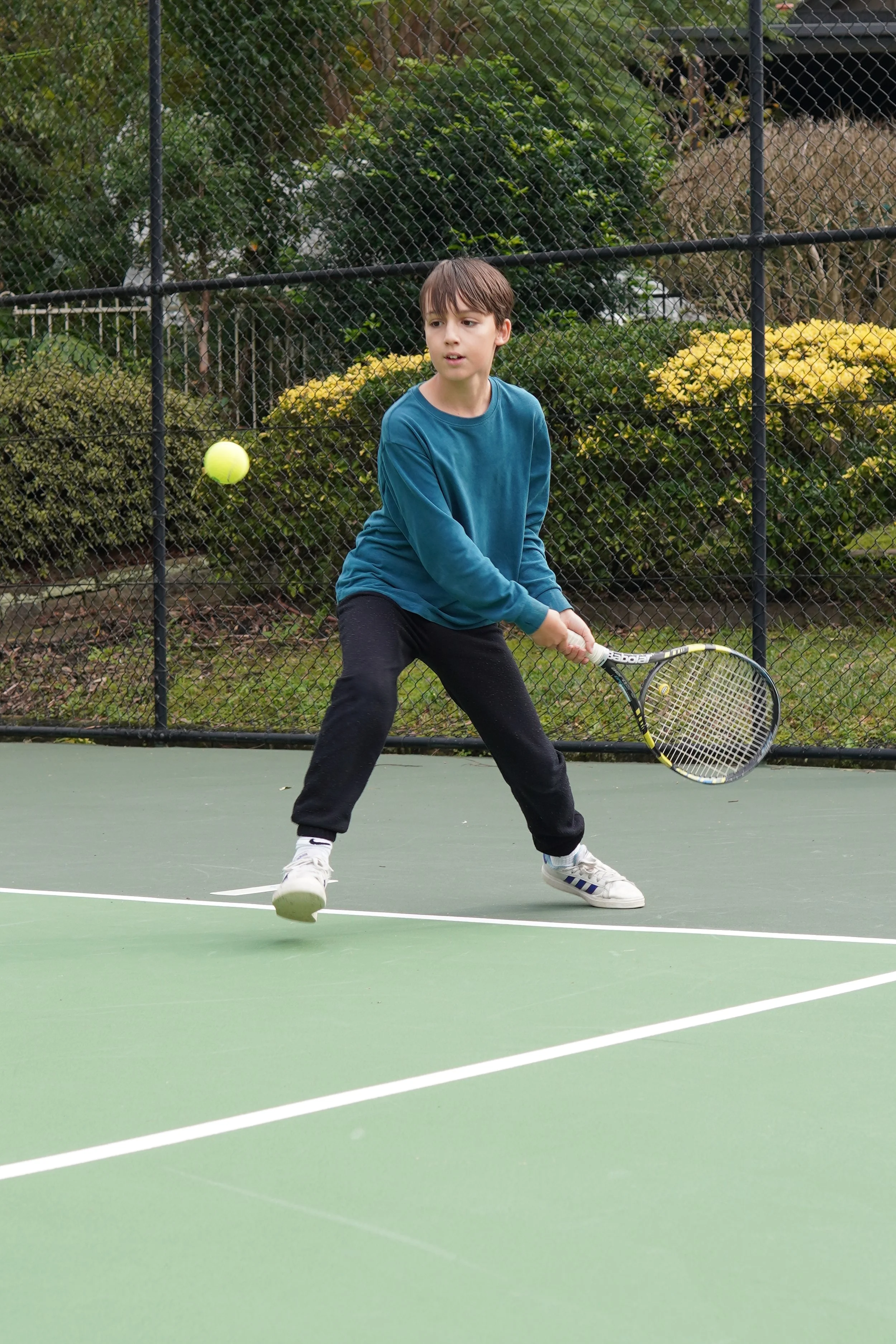Why Match Play Matters More Than You Think
As parents, we naturally want the best for our children — not only in tennis but in every area of life. We want them to practise hard, develop great technique, and feel 100% prepared before they step into a competitive match. It’s easy to think, “Once they’re perfect in practice, then they’ll be ready for matches.”
But here’s the little secret many experienced coaches and players know: some of the most important growth in a player’s development happens during match play — not before it.
In fact, match play is a unique training environment. It’s the only place where the emotions, unpredictability, and real-life decision-making of tennis truly come alive. You can practise forehands for hours, you can drill your serve until your arm aches, but until a player has to put those skills into action with the score ticking and the pressure building, they haven’t yet experienced the full picture of the sport.
⸻
Match Play is More Than Winning and Losing
The scoreboard is only part of the story. Yes, matches produce winners and losers, but the real value of match play is in the hidden lessons children absorb:
• Problem-solving under pressure – When a child plays someone with a different style, pace, or strategy, they are forced to adapt on the fly.
• Resilience after setbacks – Maybe they’ve just lost a game after leading 40–0. How do they respond? Do they fold or fight? This is where character is built.
• Trusting instincts – In a rally, there’s no time to think, “Coach said to step forward here.” They learn to trust themselves — an essential skill both in sport and in life.
These lessons simply can’t be replicated in even the most well-designed drill. Drills are controlled; matches are unpredictable. And it’s in that unpredictability that true growth happens.
⸻
The Three Big Benefits of Match Play
1. Developing Resilience
In matches, mistakes are inevitable. Even the greatest champions make plenty of them. The difference is how they respond. For young players, match play teaches the art of resetting — taking a deep breath, letting go of the last point, and focusing on the next one. Over time, this resilience transfers far beyond tennis. At school, in friendships, and later in life, they’ll have learned not to let one setback define the outcome.
2. Sharpening Decision-Making
During a match, a player is making dozens of split-second decisions: when to attack, when to defend, when to change direction. This is tactical awareness in action, and it only develops through live play. They learn to read opponents’ patterns, identify weaknesses, and adjust strategies — all in real time.
3. Building Emotional Control
Match situations can stir up a mix of nerves, excitement, frustration, and joy. Learning to manage those emotions is one of the most valuable skills tennis offers. A child who can keep their composure during a tiebreak is also learning how to remain calm before an exam, in a presentation, or in any high-pressure moment life throws at them.
⸻
Practice Makes Sense After Matches
Interestingly, match play also gives meaning to practice. That forehand approach shot your child has repeated a hundred times? They’ll feel its true value when it wins them an important point in a real match. That serve they’ve been working on? They’ll remember how it helped them save a break point when the pressure was on.
When kids experience the connection between what they practise and how it helps them in competition, their motivation to practise skyrockets.
⸻
Your Role as a Parent During Match Play
Parents often ask, “What should I do during my child’s match?” The best role you can play is that of a calm, supportive presence. You don’t need to coach from the sideline or react to every point. Instead:
• Celebrate the effort, not just the outcome – This reinforces the values of persistence and hard work.
• Encourage reflection – After the match, gently ask questions like:
• What worked well today?
• What could you try differently next time?
• How did you handle the tougher moments?
• Model composure – Your body language and reactions teach your child as much as their coach’s instructions.
Over time, these habits will help your child become not only a better tennis player but also a more self-aware, confident, and independent person.
⸻
Match Play as a Classroom
Think of every match as a classroom — a place where your child gets to test, explore, and grow. They’ll face different “subjects”: strategy, resilience, problem-solving, emotional control. And just like school, the learning is ongoing. One match might be about battling through nerves; another might be about figuring out a tricky opponent; another might simply be about keeping their head high in defeat.
⸻
Final Thoughts
Next time there’s an opportunity for match play — whether it’s a formal tournament, a school competition, or even a friendly set with a teammate — embrace it. It’s not just another event on the tennis calendar. It’s a vital training ground that accelerates your child’s development in ways drills alone cannot.
Match play is where skills become habits, habits become instincts, and instincts turn into confidence. And that confidence will serve your child far beyond the tennis court.

